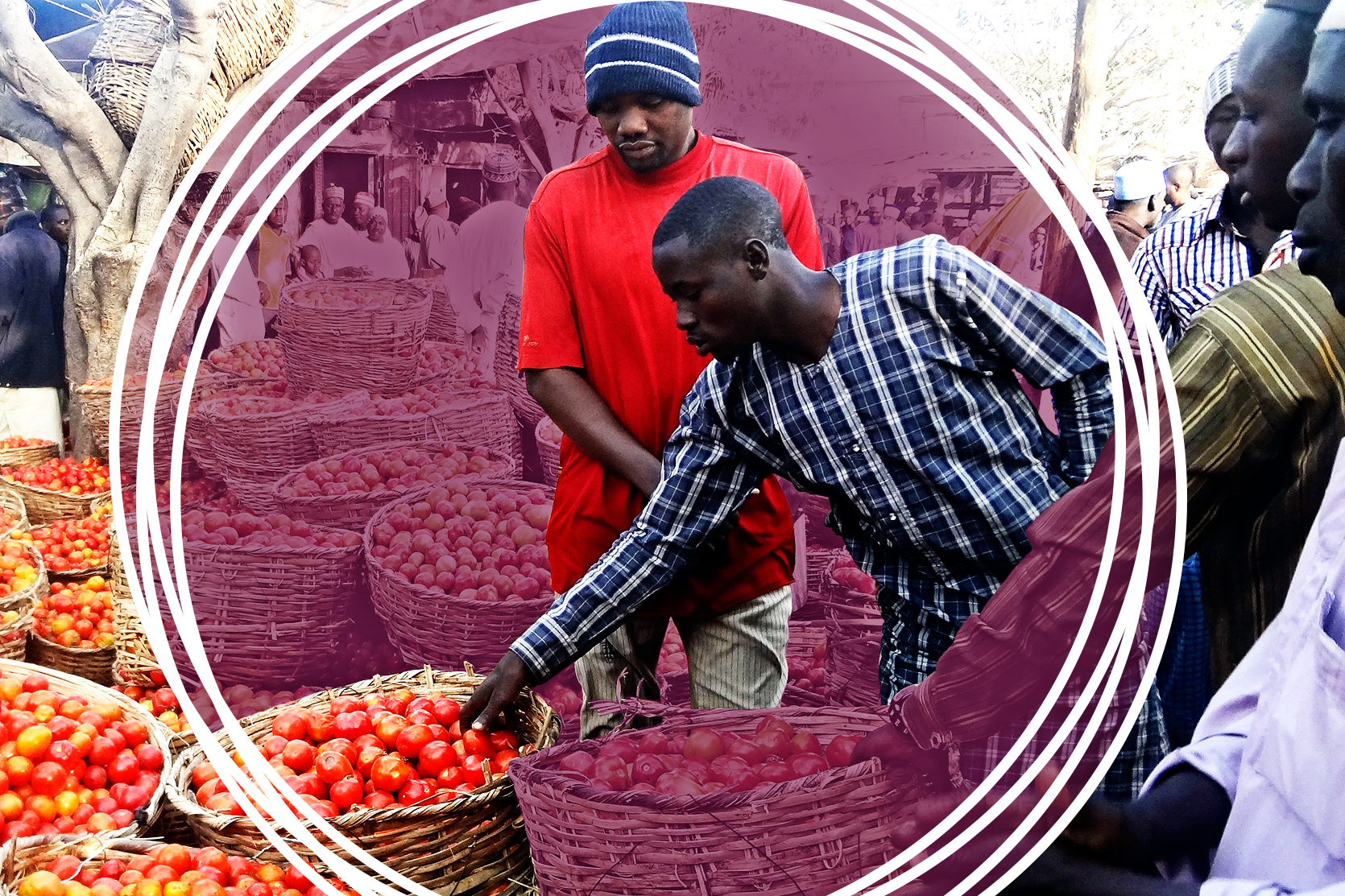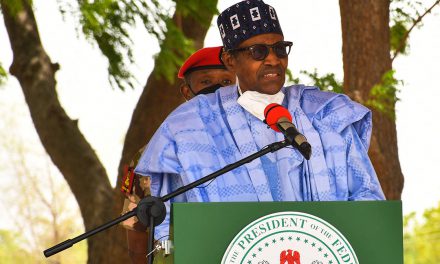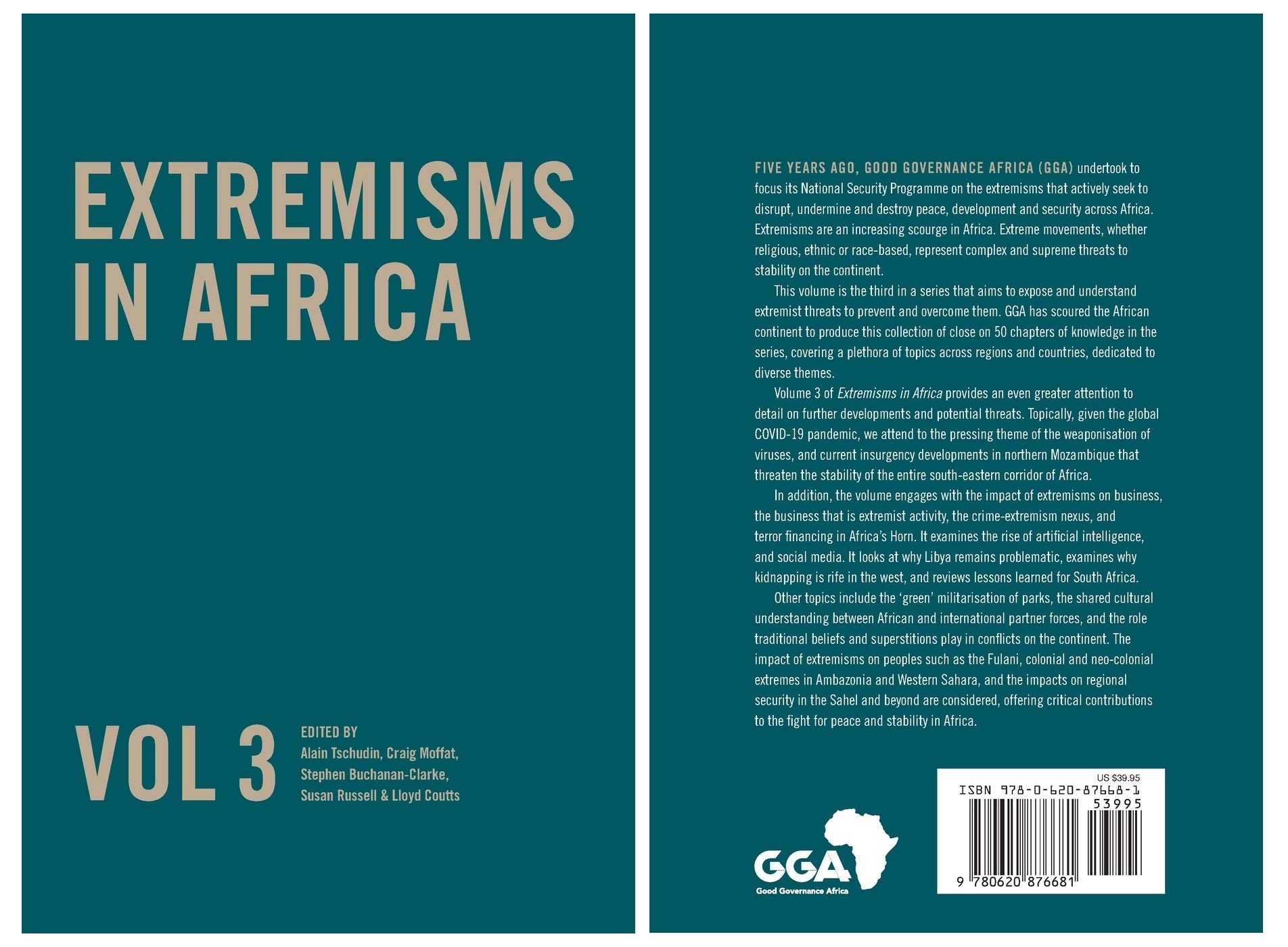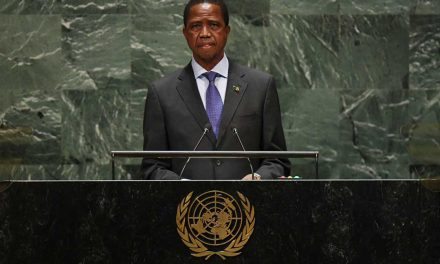Following the 26th July 2023 coup d’etat in Niger, the world woke on 30th August to news of another military putsch, this time in Gabon. Resurgent military intervention in politics and worsening misgovernance – two interlinked and formidable afflictions – threaten Africa’s stability and prospects. Over the past three years, Gabon is the eighth military putsch across West and Central Africa. Soldiers seized power in Guinea-Conakry, Chad and Niger, and twice within this same period in Mali and Burkina Faso.
Gabon has been under the rule of one family for almost six decades. Few would defend the charade that was the just concluded presidential election there. President Bongo claimed over 64% of the vote. International election observers were barred. A similar sham election was conducted in Zimbabwe around the same period, with the incumbent Emmerson Mnangagwa bludgeoning all legitimate opposition.
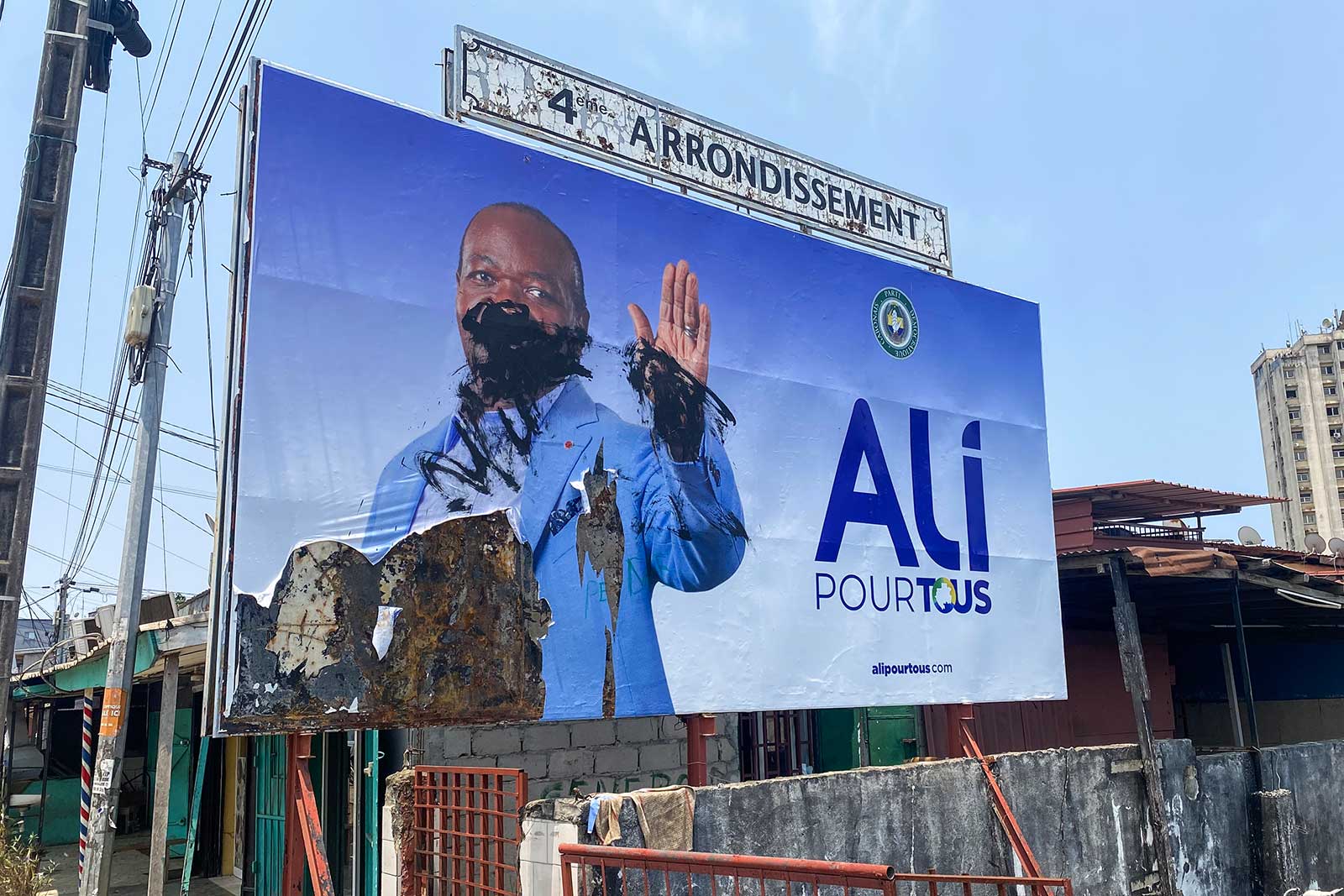
A defaced campaign billboard of ousted Gabon President Ali Bongo Ondimba in Libreville on August 31, 2023. President Ali Bongo Ondimba, son of Omar Bongo who ruled for more than 41 years, was toppled on August 30, 2023, by army officers following elections in which he vied for a third term in office. Photo: AFP
In Niger, a popularly elected president was deposed by the General Tchiani-led junta, leading ECOWAS rightly to reject the putsch. The West African regional bloc continues to insist on possible military intervention to restore Nigerien democracy, despite the groundswell of support for the junta in a section of Niger’s population. Africa’s regional and continental bodies must conceive solutions proactively before governance crises become full-blown. They must speak out more forcefully and better uphold standards whether inveighing against misrule or acting in the face of military threat to democratic rule.
Distilling drivers
Where elected representatives or self-perpetuating elites are failing woefully to deliver for the people, how should good governance be restored and strengthened without recourse to the false promises of adventurists in military uniform? There are no easy answers. Nevertheless, three broad enablers can be isolated in trying to understand the dangerous military revanchism now sweeping Africa.
First, political, economic and security mismanagement is reaching a crisis point, providing a powerful impetus for the military’s reappearance on the political stage. Failure by regional institutions like ECOWAS and the African Union (AU) to consistently highlight evidence of misrule is undermining the delivery of democratic dividends. This is lessening the appeal of civilian rule among some citizens. Election rigging and curtailed civil rights are symptomatic of this worsening outlook for political accountability.
Second, the unspoken personal ambitions of men in uniform should not be discounted. It appears to have been a strong motive in several recent coups, as one upcoming GGA paper reveals with an anatomy of the civil-military infighting leading to the coup in Niger. Similarly, the Russia and Wagner-backed junta leader in Mali, Colonel Assimi Goita, like his Burkinabe counterpart, Captain Ibrahim Traore, cultivates large personality cults. They both style themselves after the slain Burkinabe military revolutionary and icon, Captain Thomas Sankara. Yet, they have failed woefully to chart a better course than those of their deposed predecessors. The jihadi terror threat in both countries – a key reason adduced for the coups – has failed to dissipate under their rule, much like their stagnating economies and broader social indices.
The coming weeks and months will reveal whether Gabon’s new military rulers will fare better overseeing governance or even countenance a speedier return of power to an elected government. Soldiers rarely stick to their promised timetable for the transfer of power to civilians, many suspend civil rights for extended periods, and foist autocratic stagnation in lieu of the learning curve that helps societies consolidate a democratic culture. Throughout Africa’s post-independence history, soldiers have not proved more adept at avoiding the governance pitfalls of the civilians.
Third is the international environment and the external impulses on the African political and security environment. For much of the benign period after the fall of the Berlin Wall, the end of superpower rivalry dismantled clientelist states and offered glimmers of Africa’s democratic flourishing. Elections, however imperfect, became the norm in many parts. In the first two decades of this short twenty-first century, the external impulses shaping representative rule in parts of Africa were broadly positive. In places such as Nigeria, Senegal, and Kenya, outside pressure convinced leaders to acquiesce when term elongation bids were opposed by citizens. Presidents Obasanjo in Nigeria and Abdulahi Wade in Senegal were key examples.
Even losing incumbents have sometimes been persuaded by development partners to accept defeat and hand over power, as happened with President Jonathan during Nigeria’s first civilian-to-civilian turnover of power in 2015. A similar feat was recorded in Niger when the now-deposed Bazoum ascended to power in 2021. The recent coups bear out the fear that Africa is regressing, and Western powers fear global rivals may increasingly sidestep democracy to preserve access to erring African leaders in the future. In a world of intensifying geopolitics, the modest democratic advances of the past three decades in Africa may not be insulated from a disastrous unravelling. Coups have become more commonplace, and it is only now a question of where and when the next one might occur.
Turning points
Urgent proactive measures are needed tailored to the short, medium and longer term to stabilise Africa’s democracies and stem the tide of military takeovers. One big elephant in the room is the very attitude and democratic conviction of regional states, as well as those of their Western allies. Without principled and concerted support for democracy from within and outside the region, blocs like ECOWAS stand little chance of sustaining unity, not to mention deepening regional norms on non-democratic takeover of state authority.
This point is well conveyed in the recent exhortation from Nigeria’s president, Bola Tinubu, to the visiting American presidential envoy, Molly Phee, in which he urged the US to be “intentionally collaborative to deepen democracy in Africa”. The subtext to this is the US courting the Niger putschists, in an unhelpful split from ECOWAS and France. Both have continued to take a hard line against the coup, as analysed in a soon-to-be-published GGA paper on ECOWAS’s options in the Niger crisis.
In the same breadth, it could be argued that inconsistencies on the part of France regarding the undemocratic transfer of power in West Africa and the Sahel region have had a dampening effect on democratic norm-setting by ECOWAS. Examples include Paris’s role in the coronation of both Faure Gnassingbe Eyadema in Togo and Mahmat Idriss Deby in Chad after their respective fathers died in office. Many rightfully point to France’s duplicity and doubt its commitment to principled support of African democracy. The emerging US-France split in Niger will likely become a stumbling roadblock in the way of any planned ECOWAS military action to restore civilian rule in Niger, as analysed in an upcoming GGA paper looking at the impact of the disunity between ECOWAS’s two foremost Western allies in the Sahel region.
What is to be done?
Still, workable short, medium and long-term solutions must be carefully worked out. The above observations are crucial in terms of understanding the drivers, instilling the needed political commitment, and framing forward-looking actions that can help mitigate Africa’s complex misgovernance and resurgent coup challenge:
- Consolidating democracy in Gabon as in other states will require practice, trial and error, leading to locally adapted democratic models. Frequent truncation of civil rule by self-perpetuating juntas forecloses this route to cumulative and progressive learning. In those examples where a badly failing government is ultimately removed by the military, a neutral regional force mandated to step in and assist the processes of returning power to elected civilians is preferable to the whims of self-appointed juntas. The latter lack experience or even inclination towards inclusive and accountable governance. Robust regional security architectures should therefore be developed, led by the Economic Community of Central African States (ECCAS) bloc in the case of Gabon, with the support of the AU and pivotal African democratic states. The eerily similar dynastic rule next door in Cameroon is a cause for worry after Gabon’s unravelling.
- For ECOWAS and the collective AU, the first line of democratic defence must consist of denouncing and sanctioning significant governance slippages before they tip countries into crises that could invite military takeovers. Examples include the ubiquitous constitutional amendments already seen in a regional country like Togo and lately the Ivory Coast, which only alienates the political opposition and perpetuates the incumbent. However, the divergent political tones between ECOWAS and the AU on possible military intervention in Niger shows that much work is still required to coordinate and align regional and continental actors in crisis management in critical hotspots.
- ECOWAS also needs to act with due urgency on revamping its security architecture. It must go beyond its tepid plan to resuscitate the ECOWAS Monitoring Group (ECOMOG) based on a dusting-up of its original conception from the 1990s and early 2000s. What is required today is a robust standby force with strength well in excess of the 5,000 men proposed for the revived ECOMOG. It must possess the operational capability to deploy rapidly to member states facing major threats such as jihadi violence and the complementary deterrence capability to dissuade self-serving military putschists.
- For the longer term, big thinking is needed on dynamising local reform and regional and pan-continental integration initiatives to begin delivering in a manner that yields quantifiable material improvement in the lives of citizens. This must support interventions to deliver broad empowerment, livelihood opportunities, and inclusive security. Without this, support for democratic governance may be frail and opportunities widened for militaristic adventures in the political space.
Oladiran (Ola) Bello obtained both his MPhil and PhD degrees in International Relations from the University of Cambridge and also holds a First Class BSc degree from the Obafemi Awolowo University, Ile-Ife. He has worked for organisations including the United Nations (New York) and Management Systems International (Washington DC), Merchant International Group (London) and Arthur Andersen (later KPMG). Dr Ola Bello has more than 10 years of experience in research and policy advisory, including on governance and extractive sector reform; sustainable development; and international development cooperation (including in EU-Africa relations). He spent three years with FRIDE (Spain) managing a donor-funded programme on the EU’s role in managing fragility and resource governance in select African countries. In 2012-2015, he was Head, Governance of Africa’s Resource Programme (GARP) at the South African Institute of International Affairs (SAIIA) and also functioned as head of SAIIA’s Cape Town office. Ola is spearheading GGA's technical support to Nigerian reform, including delivering ethics training for senior Nigerian judicial officers and change-makers (2017-2019). He's also working to expand GGA's role as in-country resource centre for multilateral consultative missions to Nigeria's ministries and parastatals. These missions include the UNECA/AU mineral sector governance team.


